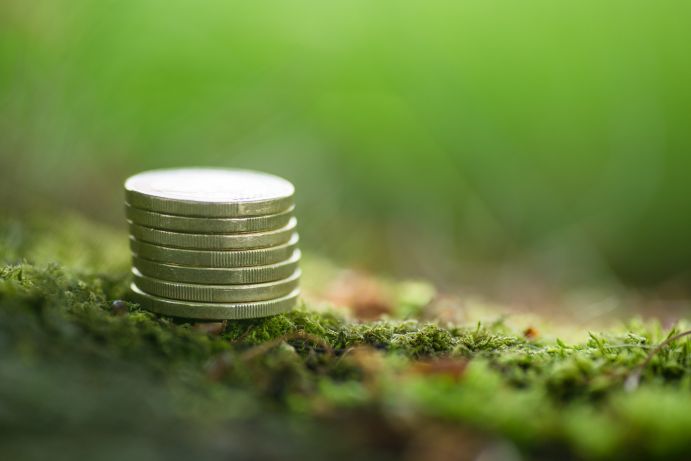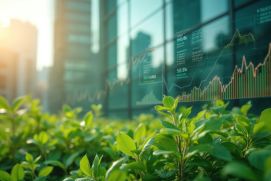Action 22: Supporting sustainable economic and financial systems
We want to support sustainable business practices and use the leverage effects of the financial sector in particular to promote gearing the real economy towards a climate-friendly mindset.
Where do we stand?
A sustainable financial system is a prerequisite for sustainable economic activity and sustainable investment in the real economy. However, current investment behaviour supports global warming of four degrees or more. So that the real economy will invest in more climate-friendly and sustainable technologies and processes, the financial sector must also become greener. And if financial markets are to become the central lever for green economies, policymakers must create the right regulatory environment. We want to provide the knowledge needed to ensure that the financial system will support the achievement of the Paris climate goals in the future, and we want to contribute to Germany and Europe becoming leading sustainable finance locations.
What are the research needs?
Through our research funding, we want to create green markets of the future (for example in climate-friendly technologies or in the bioeconomy), prepare markets for the future, and use the leverage of the financial sector to support the transition of the real economy into sustainable and climate-friendly structures. Research will be undertaken to explore ways to redirect financial and investment flows from unsustainable activities to sustainable ones. To this end, answers to the following questions will be developed: What could efficient financial markets for climate-conscious investment decisions look like? What could incentive structures for climate-friendly investments be like? How must sustainable financial market instruments and regulatory approaches be designed? This includes the development of new measurement and evaluation concepts to determine the environmental and social impacts of the financial sector, as well as of production and consumption in the real economy. In the field of digitalisation, our research funding aims to develop secure digital solutions that support modes of production, organisation and consumption that are sustainable, climate-adapted, resilient and improve people’s quality of life. There is great potential here, for example, in small and medium-sized enterprises, platform and sharing economies, and approaches in line with an economy for the common good.
Implementation steps and milestones
- As part of the National Bioeconomy Strategy, we arefocusing on the investigation of social, economicand political correlations for sustainable bio-basedmanagement and are analysing the contribution ofthe bioeconomy to sustainability. This means that, jointly with the Federal Ministry of Agriculture, theFederal Ministry for the Environment and the Federal Ministry for Economic Affairs, we will continue tofund the establishment of a monitoring system forthe bioeconomy.
- From 2022 onwards, we will focus on exploitingthe opportunities digitalisation offers to synergisetechnological and social innovations, new businessmodels, and corporate and policy innovations. Inparticular, we will tap the potential of small andmedium-sized enterprises for new solutions.
- As part of the Federal Government’s Climate Action Programme 2030, from 2022 onwards we willfund research to support the implementation ofthe German Sustainable Finance Strategy and theachievement of the Paris Climate Agreement targets. Building on the success of the research programmeEconomics of Climate Change, we will address theopportunities and challenges associated with climatechange through the funding priority Finance andClimate Protection.
- From 2022 onwards, building on the basis of ameta-study, we will also strengthen research on thefurther sustainability impacts of the financial sectorand on aligning the financial system with sustainability. In addition to ecological aspects, our researchwill also take account of social and economic sustainability in particular and open up opportunitiesto implement sustainable innovations and businessmodels in the real economy.
Last updated on






